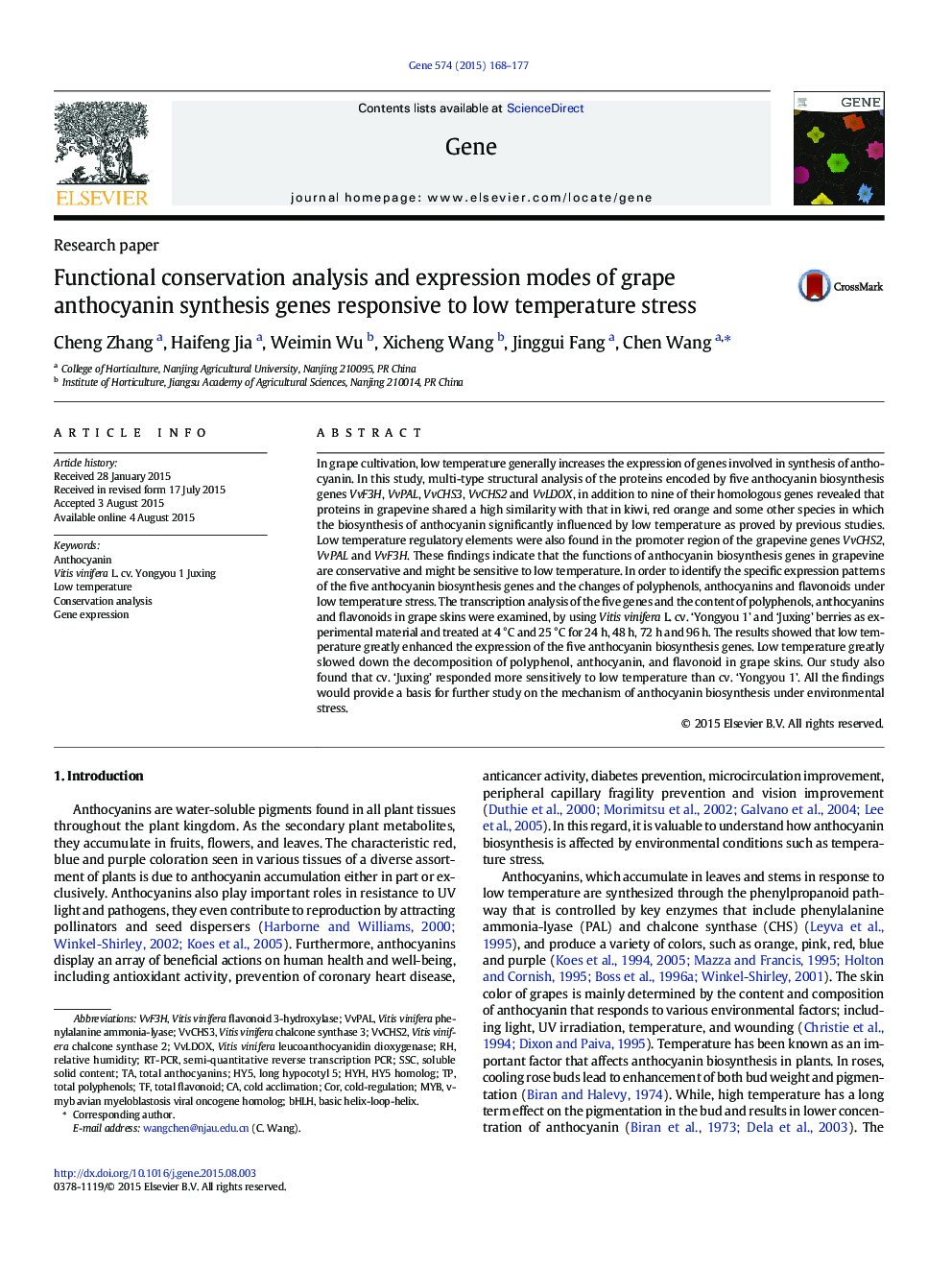| کد مقاله | کد نشریه | سال انتشار | مقاله انگلیسی | نسخه تمام متن |
|---|---|---|---|---|
| 2815392 | 1159867 | 2015 | 10 صفحه PDF | دانلود رایگان |
• F3H, PAL, CHS3, CHS2 and LDOX are highly conserved in grape, orange and kiwi.
• Low temperature induced the expression of F3H, PAL, CHS3, CHS2 and LDOX.
• Low temperature slowed the degradation of anthocyanin, flavonoids and polyphenol.
• Cultivar ‘Juxing’ responds more sensitively to low temperature than ‘Yongyou 1’.
In grape cultivation, low temperature generally increases the expression of genes involved in synthesis of anthocyanin. In this study, multi-type structural analysis of the proteins encoded by five anthocyanin biosynthesis genes VvF3H, VvPAL, VvCHS3, VvCHS2 and VvLDOX, in addition to nine of their homologous genes revealed that proteins in grapevine shared a high similarity with that in kiwi, red orange and some other species in which the biosynthesis of anthocyanin significantly influenced by low temperature as proved by previous studies. Low temperature regulatory elements were also found in the promoter region of the grapevine genes VvCHS2, VvPAL and VvF3H. These findings indicate that the functions of anthocyanin biosynthesis genes in grapevine are conservative and might be sensitive to low temperature. In order to identify the specific expression patterns of the five anthocyanin biosynthesis genes and the changes of polyphenols, anthocyanins and flavonoids under low temperature stress. The transcription analysis of the five genes and the content of polyphenols, anthocyanins and flavonoids in grape skins were examined, by using Vitis vinifera L. cv. ‘Yongyou 1’ and ‘Juxing’ berries as experimental material and treated at 4 °C and 25 °C for 24 h, 48 h, 72 h and 96 h. The results showed that low temperature greatly enhanced the expression of the five anthocyanin biosynthesis genes. Low temperature greatly slowed down the decomposition of polyphenol, anthocyanin, and flavonoid in grape skins. Our study also found that cv. ‘Juxing’ responded more sensitively to low temperature than cv. ‘Yongyou 1’. All the findings would provide a basis for further study on the mechanism of anthocyanin biosynthesis under environmental stress.
Journal: Gene - Volume 574, Issue 1, 10 December 2015, Pages 168–177
